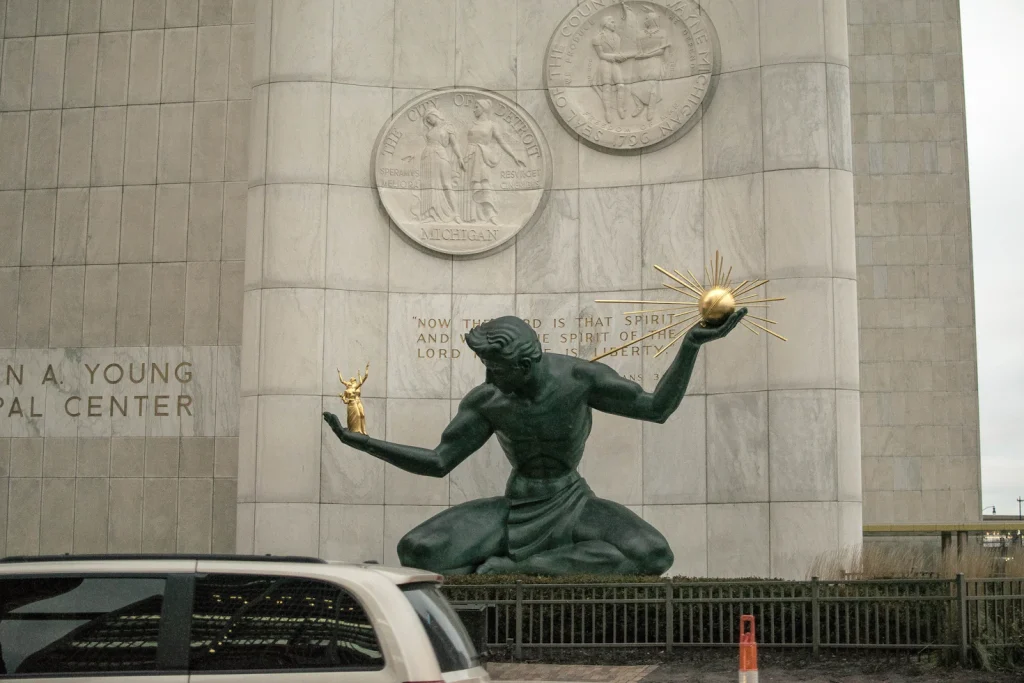How Michigan Leads the Way for Arab Americans

The Arab American population is growing everywhere. But that transformation is nowhere as true as in Michigan. Even though the big cities on both coasts still attract many of the arrivals from the Middle East and North Africa, it is smaller cities in the Rust Belt that are gaining more Arab Americans per capita.
Metro Detroit and the surrounding area have been changing dramatically over the last 15 years or so. Detroit itself famously declared bankruptcy in 2013 but there has been some regrowth since then. An influx of people from all over has not been able to reverse the trend of a decreasing population but many Arab Americans have continued to make the place their home.
The region around Detroit is certainly experiencing something of an uptick at the moment. More jobs are being created, Michigan gambling sites have taken off after the overturning of PASPA in 2018, and even the Lions have been resurgent, making it all the way to the NFC Championship for the first time in over 30 years. Arab Americans have transformed the region and shown the rest of the country what a positive effect new communities can have on old cities.
Headline News
There was the somewhat predictable rightwing uproar and media attention when it was announced that Dearborn had become the first city in the US to be majority Arab American a few years ago. Locals had known for years, of course, that there was a sizeable population. But a revamping of the US Census Bureau categories in 2020 proved the point.
Of a population of just under 110,000 people in Dearborn, around 54.5% claimed Middle Eastern or North African (MENA) ancestry. Most of those were Arab and it was up from 47% from the year before. The spike is understood to have been because of the increased thoroughness of the count rather than a sudden influx of people. It should be said that any negative reaction was drowned out by overwhelming positivity in the city and statewide.
History of Arab Americans in Michigan
Arab Americans in Michigan are nothing new, however. The first Middle Eastern settlers in the Detroit area were Lebanese Christians in the 1870s. There were reportedly over 550 Syrians working in Henry Ford’s factory, and by 1930 there were over 9,000 Arab speakers in the Motor City.
Palestinians, Yemenis, and Iraqis soon made their way to this part of the US and the region experienced an immigration peak in the period between 1927 and 1950. The numbers continued to grow even after the motor industry in Detroit declined. The later Lebanese Civil War, Gulf War, and Iraq Wars also resulted in more people from the MENA region finding a new home in Michigan.
More Arab Speakers
Unsurprisingly, more people claiming MENA ancestry means more Arab speakers in the Metro Detroit region. By 2021, there were more Arab speakers in Detroit than in any other city in the US including New York, Los Angeles, and Chicago – around 13% of all Arab Speakers in the country.
Decades of immigration to cities in Michigan had seen the establishment of Arab speaking networks and organizations that further the use of the language and also assist people in the community. Although the Metro Detroit region is the epicenter of this linguistic transformation, it is being repeated to a lesser extent nationwide. By 2021, Arab was the seventh most common non-English language spoken in homes – and now more Americans speak Arab than either German or Italian.
Arab Americans and Sports
Growing Arab American populations in Michigan have changed the way the cities look to an extent, with Middle Eastern and North African food shops a much more common site than 50 or 60 years ago. But it is in other aspects of society and life that Arab American influence can be seen.
Sports in the Metro Detroit region cater very much to the Arab American communities and there are hundreds of thousands of Lions fans with MENA ancestry. But soccer has taken off in a big way as well and nowhere more so than in Hamtramck. Just north of downtown Detroit and surrounded on most sides by the bigger city, it was the first Muslim-majority city in the US and just happens to be the home of Detroit City Football Club.
The club and its supporters enjoy a close relationship with the Arab American communities in the city and the team also boasts a number of youth teams where local children play. Soccer is obviously a firm favorite in the Middle East and North Africa and DCFC has been able to rely on a fan base that is like no other in the country.
Backing Biden and Changing Views
Politically, Arab Americans were credited with handing Michigan to Joe Biden in 2020. After four years of Donald Trump and his largely Islamophobic rhetoric, activists and organizers convinced Arab American communities in the state to vote Democrat – and their hard work paid off.
Hilary Clinton had narrowly lost Michigan to Trump in 2016 but Biden won by around 150,000 votes four years later, thanks in part to the support of the 300,000 Arab Americans in the Wolverine State. But Biden may not be able to rely on that power bloc in this year’s election.
Although polls have shown that the US public has been generally supportive of Biden’s handling of the crisis in Palestine, that is certainly not the case in Michigan among Arab Americans. Michigan is a swing state that Trump only won by around 10,000 votes in 2016 and Democrats should be worried about Arab Americans either not turning out, or voting for a third option, handing the state back to Trump in what looks like being a tight Presidential election.

Figure 2 Arab food stores are a common site in Michigan
The Future of Arab Americans in Michigan
No matter the identity of the US president in the years ahead, the future looks bright for Arab Americans in Michigan. There is already political power that is not found elsewhere in the country and social and community life has a distinctly Arab American feel in many of the cities in the Metro Detroit region. It really is just a case of how more powerful and influential Arab Americans can become in the next few years.
Please note that this post was paid for by a third-party and does not necessarily reflect the views of Arab America or its employees. These posts help allow Arab America to produce our wonderful original content, thanks for your understanding.
Don’t forget to check out Arab America’s blog!


